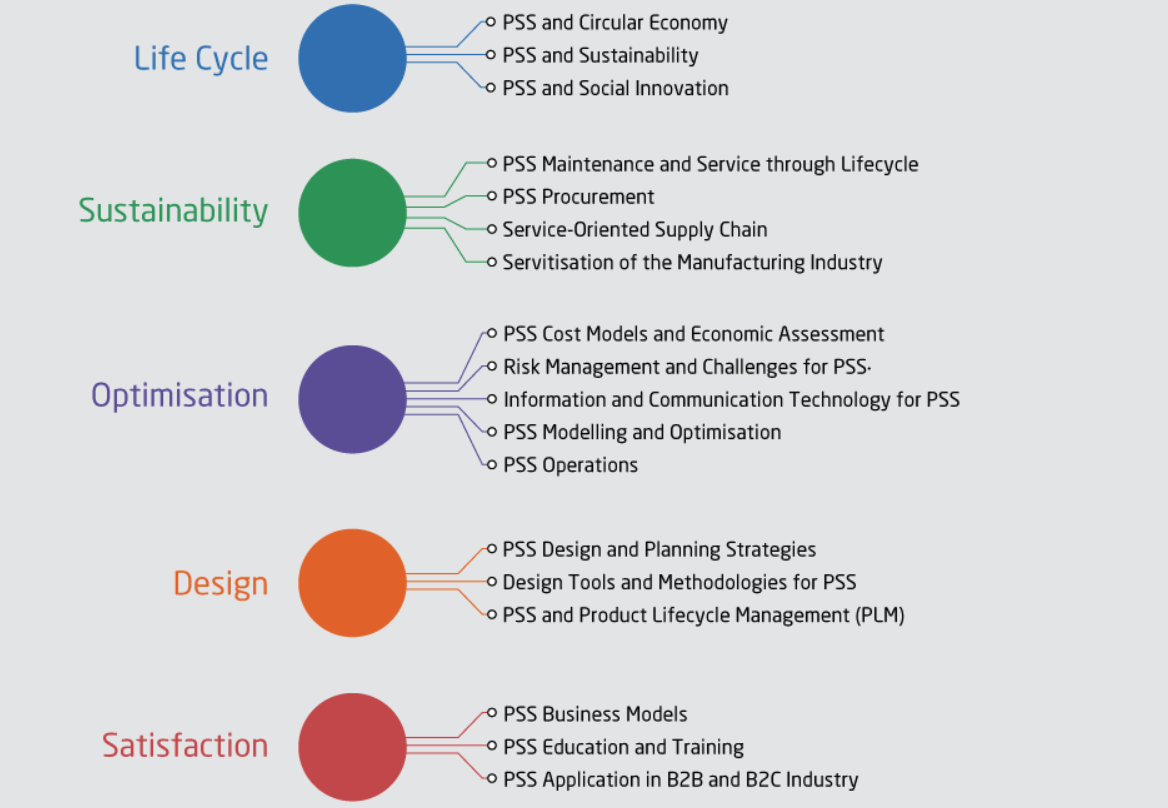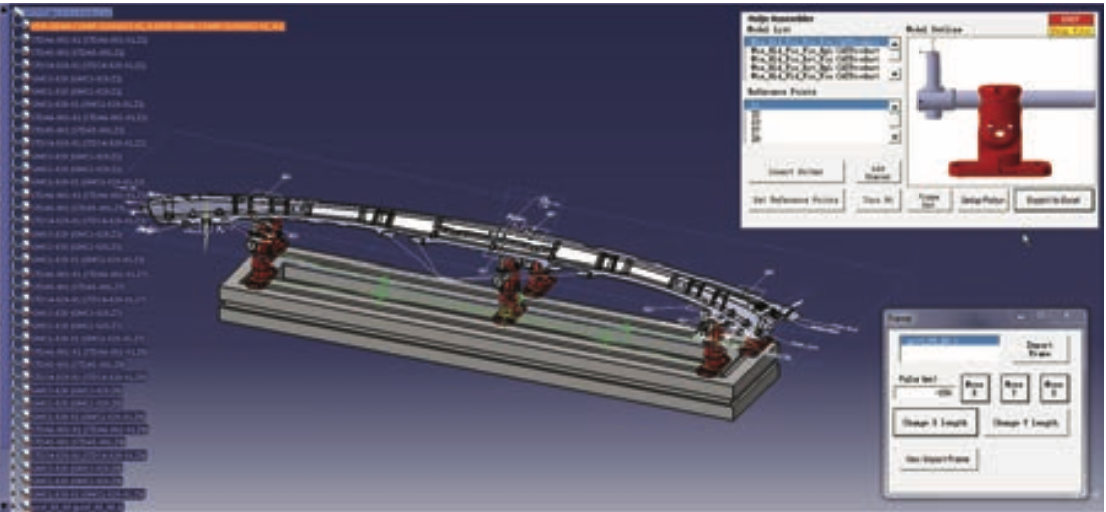
BTH PDRL at the 9th CIRP IPSS Conference
- Post by: Marco Bertoni
- 12th June 2017
- No Comment
In their editorial, Tim McAloone, Daniela Pigosso, Niels Henrik Mortensen and Yoshiki Shimomura remind us that the philosophy behind in Industrial Product Service Systems is to create customer-oriented solutions that function for longer and thus increase resource productivity, minimise resource consumption and enhance the ultimate value-add to the end user.
In this spirit, the 9th CIRP IPSS conference kicking off next week at Denmark Technical University will explore how the transition to a Circular Economy can be supported by PSS, with the goal to think in circular product- and system life cycles, rather than our current linear “take-make-waste” paradigm.
Data mining, simulation-driven design and concept selection tools are main research areas for BTH Product Development Research Lab, which this year will contribute to the event with a total of 6 publications (i.e., about 8% of the total). Here below a glimpse into BTH PDRL contributions for 2017.
Massimo Panarotto, Johan Wall, Tobias Larsson, Simulation-driven Design for Assessing Strategic Decisions in the Conceptual Design of Circular PSS Business Models, 9th CIRP IPSS Conference: Circular Perspectives on PSS 2017
Abstract: Due to ever increasing challenges faced by our global society, circular design and the idea of product-service systems (PSS) is gaining traction within businesses. However, ‘predicting’ the value of a future PSS solution in the early design phases is difficult, since it requires the ability to balance long term potential with short term decisions. Modelling and simulation is believed to be able to support this challenging task. A simulation framework for circular design of PSS is presented. The simulation process enables the comparison between functional and non-functional performances and their life cycle contributions depending on a defined PSS-like business model strategy. Such integrated simulation framework is intended to exploit engineering models outside their specific discipline, enabling cross-functional collaboration and help decision makers understand how a design can contribute in satisfying customer and stakeholders needs during the lifecycle of a PSS.
Yasmeen Jaghbeer, Sophie I. Hallstedt, Tobias Larsson, Johan Wall, Exploration of Simulation-Driven Support Tools for Sustainable Product Development, 9th CIRP IPSS Conference: Circular Perspectives on PSS 2017.
Abstract: Global society is encountering many challenges such as climate change, resource depletion, etc., which comes with a set of challenges and opportunities for businesses. Applied research in operational tools and methods that support sustainable product- and service systems innovation, aims to strengthen businesses to overcome these challenges. In recent years, several tools and methods have been developed in the sustainable product development field with focus on modelling and digitalization. This paper explores how sustainability has been integrated in modelling and simulation, and presents results from a literature review with the purpose of highlighting opportunities and challenges in the field. Furthermore, an initial model-based engineering support toolbox (MBE) is presented, with focus on support tools for socio-ecological sustainability integration in the early product development stages.
Alice Rondini, Marco Bertoni, Giuditta Pezzotta, An IPA Based Method for PSS Design Concept Assessment, 9th CIRP IPSS Conference: Circular Perspectives on PSS 2017.
Abstract: Literature and field study research highlight that transiting toward PSS means for many companies to either miss interesting business opportunities or to bet on the wrong solution concept. Early stage assessment activities play a crucial role in this respect, guiding the selection of a value-adding PSS while preventing commitment of resources on poor design alternatives. Emerging from empirical studies in the manufacturing industry, the paper highlights the need for systematic procedures, tools and metrics able to encompass customer satisfaction together with the producer’s value perspective in such assessment. The paper proposes a 2 step assessment method based on the Importance Performance Analysis (IPA) matrix enabling the integration of customer and provider value and supporting early stage PSS design decision making. Verification activities highlight the positive implications of balancing the trade-off between customer and provider value during the PSS assessment phase.
Marco Bertoni, Alice Rondini, Giuditta Pezzotta, A Systematic Review of Value Metrics for PSS Design, 9th CIRP IPSS Conference: Circular Perspectives on PSS 2017.
Abstract: The notion of ‘value’ has become pivotal in the PSS domain, with a plethora of ‘indicators’, ‘drivers’ and ‘measurements’ proposed to guide the assessment of PSS concepts across the design process. This paper presents the results of a systematic literature review that maps existing contributions dealing with metrics for PSS value in early design. The findings reveal the lack of a common taxonomy to define what PSS value is, as well as differences in terms of granularity of the applied metrics, which span from very generic to highly case-study specific. This mapping aims at validating a proposed classification framework for such metrics, which balances customer and provider value perspectives in early stage PSS concept assessment activities. Its goal is to raise the cross-functional design team awareness on the multiple value types impacted by early stage design decisions when working with MADM matrixes; hence to highlight opportunities for improvement, recombination and refinement.
Abstract: The paper presents a literature review about data mining applications in Product/Service-Systems (PSS) design. A systematic literature review, combined with snowballing techniques, has been run to identify relevant contributions in the area. The analysis has focused on the categorization of the contributions according to their impact on the PSS design process and according to their theoretical or empirical nature. A picture of the different research achievements for each stage of the PSS design process have been drawn, identifying the research gaps in respect to the challenges of PSS design. Based on the analysis the paper proposes a set of research questions for each PSS design stage with the intent of facilitating the application of data mining techniques in PSS design, and ultimately push forward the state of the art.
Christian Johansson, Tobias Larsson, Sravan Tatipala, Product-Service Systems for Functional Offering of Automotive Fixtures: Using Design Automation as Enabler, 9th CIRP IPSS Conference: Circular Perspectives on PSS 2017.
Abstract: In production of automotive components, control-measuring is an important activity to assure that geometries meet expected tolerances. This is done via randomly taking parts out of production for control-measuring in a fixture. This fixture is both a tedious and repetitive product to design and configure. The aim of this paper is therefore to present an approach to adopt a design automation strategy towards supporting the configuration of fixtures and to discuss opportunities for moving towards a Product-Service System-paradigm in this domain. This paper reports on a development of a design automation demonstrator to configure fixtures for control-measuring. The demonstrator has been developed in a commercial CAD-environment and will be deployed through a web-based interface. The paper concludes with a discussion on PSS-opportunities and how to drive this with a Knowledge-Based Engineering-modelling approach.





